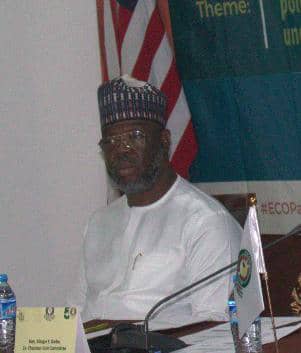Segun Ojumu
Monrovia, Liberia – West African parliamentary leaders are meeting in Liberia’s capital this week to address the pressing issue of soaring unemployment across the sub-region, particularly among its youth. The ECOWAS Parliament’s Joint Committee on Administration, Finance & Budget, Public Accounts, Macroeconomic Policy & Economic Research, Industry, and Private Sector has convened to assess the effectiveness of the ECOWAS Investment Policy (EIP) as a tool for job creation.
Opening the meeting in Monrovia on Monday, June 16, 2025, Senator Edwin Melvin Snowe Jr., head of the Liberian Delegation to the ECOWAS Parliament, underscored the urgency of the discussions. He described unemployment as “not just an economic concern; it is a social emergency that undermines peace, fuels migration, and erodes hope.”
Youth Unemployment Crisis
Recent data cited in the meeting’s concept note indicates that youth unemployment in West Africa is among the highest globally, despite the region’s abundant natural resources and human capital. This stark reality has prompted the committee to critically evaluate the existing ECOWAS Investment Policy.
“Our shared task is to ensure that this policy truly delivers on its promise—by attracting quality investment, supporting private sector growth, and creating decent, sustainable jobs for our people,” Senator Snowe stated. He added that Liberia “feels the effects of unemployment acutely,” with too many talented young people lacking opportunities.
The Role of Parliament and Governments
The meeting aims to identify the strengths and limitations of the EIP and propose practical reforms. For parliamentarians from across the ECOWAS bloc, this presents an opportunity to:
- Review Legislation: Scrutinise existing national and regional laws to identify and rectify any legislative gaps or bureaucratic hurdles that currently deter investment or prevent it from translating into job creation.
- Ensure Accountability: Establish robust mechanisms to hold member states accountable for the effective adoption and implementation of investment policies designed to generate employment.
- Foster Private Sector Growth: Explore legislative incentives and an enabling environment to encourage both regional and international private sector investment that specifically prioritises job creation, especially for small and medium enterprises (SMEs).
- Drive Innovation: Promote policies that foster economic inclusion and innovation, ensuring that new investments lead to sustainable job opportunities.
Governments of ECOWAS member states, meanwhile, are expected to:
- Implement Reforms: Act on the recommendations from the parliamentary committee to enact necessary policy reforms and investment incentives.
- Improve Collaboration: Enhance regional collaboration to create a unified and attractive investment climate across the sub-region, reducing competition among member states and promoting collective growth.
- Prioritise Job-Rich Sectors: Direct investment towards sectors known for high employment multipliers, such as agriculture, light manufacturing, and services, focusing on youth skill development.
- Address Structural Barriers: Work to dismantle structural barriers that prevent investment from effectively reducing unemployment, including issues related to infrastructure, access to finance, and regulatory frameworks.
Analysis: Navigating a Complex Landscape
This meeting comes at a particularly sensitive time for ECOWAS. The recent withdrawals of Mali, Niger, and Burkina Faso have fragmented the bloc, raising questions about the future cohesion of regional policies. A unified and effective ECOWAS Investment Policy, aimed at addressing a crisis as pervasive as unemployment, could serve as a powerful tool for rebuilding trust and demonstrating the tangible benefits of regional cooperation, even amid political divergences.
The focus on “quality investment” and “decent, sustainable jobs” suggests an awareness that not all investment translates into equitable growth. The deliberations will likely explore how to attract foreign direct investment (FDI) that genuinely contributes to local economies, transfers skills, and creates long-term employment, rather than solely extracting resources.
Liberia’s role as host, having recently secured a non-permanent seat on the United Nations Security Council, adds symbolic weight to the meeting. Senator Snowe highlighted this as a reflection of Liberia’s “enduring commitment to global peace, diplomacy, and international cooperation,” positioning the nation as a constructive voice for Africa.
The success of this committee’s work will depend not only on the policy recommendations made but also on the political will of member states to implement them in a coordinated manner. If successful, it could signal a new chapter for economic inclusion and stability in a region grappling with significant socio-economic challenges.





Add Comment